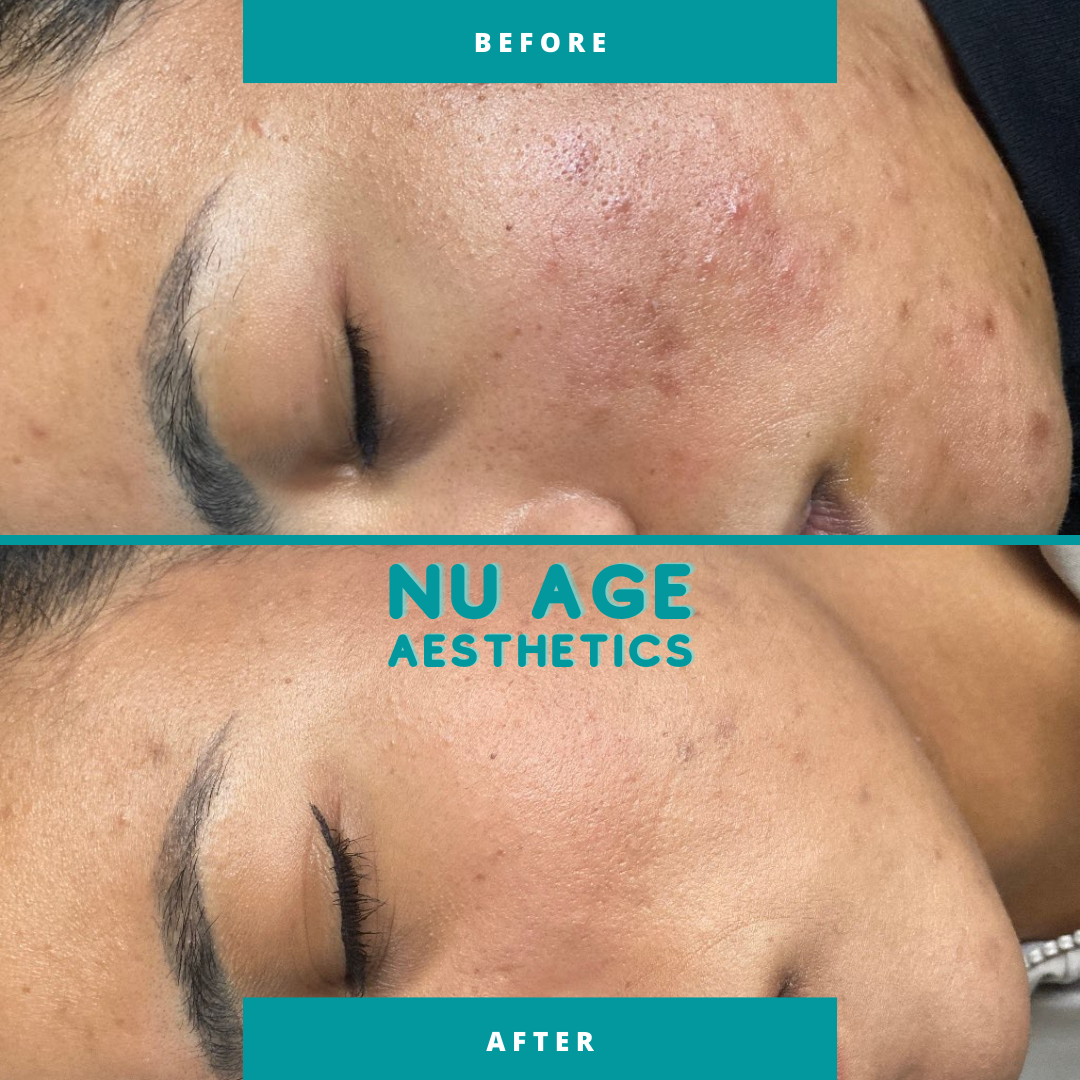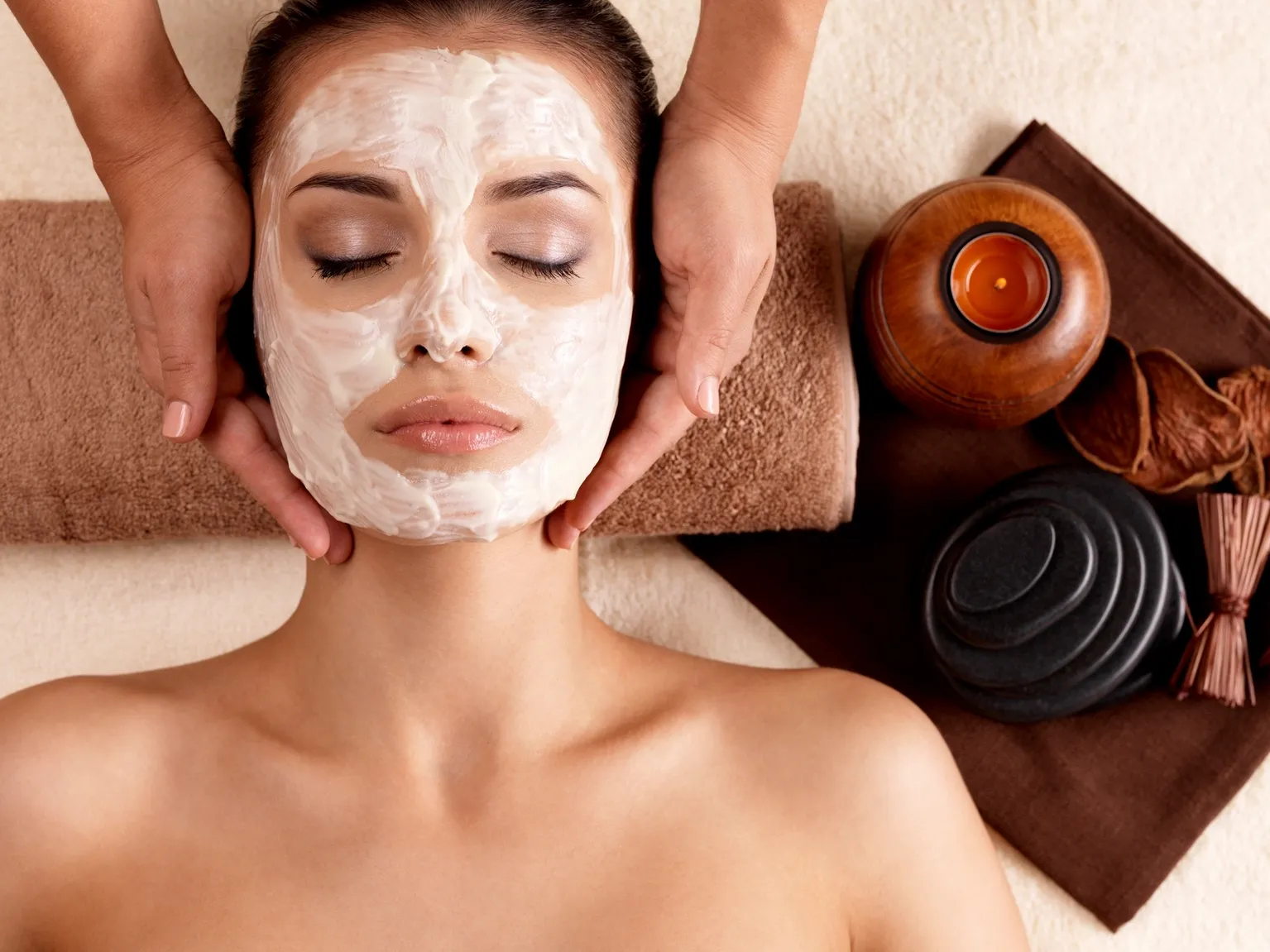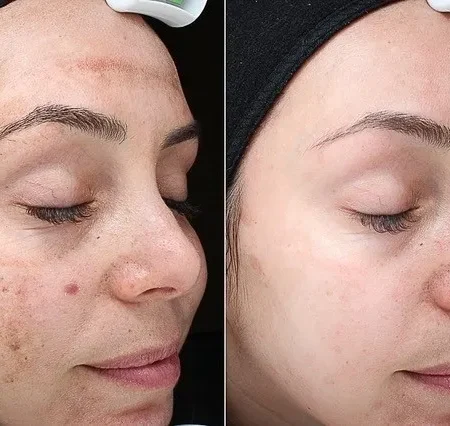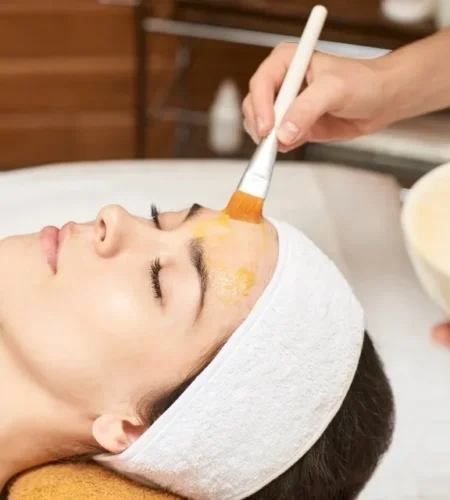Chemical and peel may sound scary.
Medical Grade Chemical Peels at Nu Age Aesthetics featuring Rhonda and VI Peel are gentle enough for all skin types with little to no downtime.
During your session, our experienced estheticians provide advanced treatments for deep exfoliation, resulting in a refreshed, more radiant-looking you.
Peels - nonsurgical skin improvement
Peels when appropriately administered are some of the most powerful non-surgical skin improvements available. They remove cellular buildup, stimulate skin regeneration, and reduce wrinkles, fine lines, large pores and oiliness. They also help clear blemishes, treat hyper-pigmentation and improve overall texture and tone.
Core of peel treatment
At the core of a peel treatment, highly specialized acids and enzyme solutions are applied to remove damaged layers of cells from the skin’s outer surface – revealing more glowing, youthful skin.
Treatments vary in intensity and a client’s skin type and desired results will dictate which peel treatment is best. Intensities include progressive, mid-depth and deep peels.
Progressive peels
Typically the mildest course of treatment, progressive peels usually do not cause immediate exfoliation because they only remove the stratum corneum. Repeated services will create mild sloughing with cumulative effects. The result is refining, mild peel with no downtime.
Mid-depth peels
Mid-depth peels affect the intraepidermal layer with exfoliation occurring within two to three days of application. Rejuvenation follows little to no downtime. Peeling usually consists of light flaking similar to a sunburn peel.
Deeper peels
Restore and renew skin with the most dramatic results by using deep peels. The skin undergoes considerable peeling rather than flaking because deep peels affect the deepest intraepidermal layers. Typically three or four days after application, the skin may become temporarily brown and crusty. The entire process takes about seven to ten days.

Aftercare Medical Grade Chemical Peels
Aftercare for medical grade chemical peels is an important part of the treatment process. The skin may be sensitive and require some special care in the days and weeks following the procedure. Here are some general guidelines for aftercare:
- Avoid direct sun exposure: The skin will be more sensitive to UV rays after a chemical peel, so it is important to avoid direct sunlight and wear a broad-spectrum sunscreen with an SPF of at least 30. This will help prevent further damage to the skin.
- Moisturize: The skin may feel dry and tight after a chemical peel, so it is important to moisturize regularly to help restore hydration. Use a gentle, fragrance-free moisturizer recommended by your medical professional.
- Avoid picking or peeling: It is important to resist the urge to pick or peel the skin as this can lead to scarring or infection.
- Avoid certain products: Avoid using exfoliating or irritating skincare products, such as retinoids, benzoyl peroxide, or alpha-hydroxy acids, for a few days after the treatment as they can irritate the skin.
- Follow instructions: Follow all post-treatment instructions provided by your medical professional, including when to schedule follow-up appointments.
- Be patient: It may take several days to a week for the skin to fully heal, and the results of the peel may not be immediately visible. Be patient and continue to follow your aftercare routine for optimal results.
It is important to discuss specific aftercare instructions with your medical professional, as they may vary depending on the type of chemical peel used and your individual skin type and condition.
Book an Appointment



